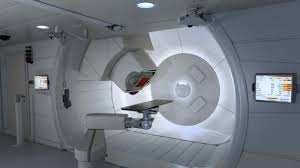Islamabad, Dec 19: The Nuclear Medicine Oncology and Radiotherapy Institute (NORI) has taken a significant step in enhancing cancer care by acquiring a cutting-edge cyclotron worth Rs. 1.5 billion. This advanced technology facilitates the production of Gallium 68 isotopes, critical for positron emission tomography (PET) scans, now accessible to cancer patients within a 200-kilometer radius of Islamabad. Previously, such isotopes were only available in Lahore, creating logistical challenges for patients in northern regions due to the isotopes’ short half-life.
During a media briefing, NORI Director Dr. Muhammad Faheem emphasized the transformative impact of this development. He explained that PET scans, which use radioactive tracers to reveal the metabolic activity of tissues, are vital for accurate cancer diagnosis and treatment planning. The availability of Gallium 68 isotopes locally will significantly ease the burden on patients and improve diagnostic precision.
Dr. Faheem also highlighted NORI’s patient-centered approach, including its no-refusal policy, which ensures that no cancer patient is denied treatment. Together with 19 affiliated Atomic Energy Commission Cancer Hospitals (AECHs), NORI treats 80% of cancer patients across Pakistan. The institute further supports affordability through a hospital pharmacy that offers a 40% discount on medicines for in-patients, making treatment accessible without compromising quality.
Pakistan Atomic Energy Commission’s Director General of Scientific Information and Public Relations, Shahid Riaz Khan, praised NORI’s evolution since its establishment in 1983. It is now recognized as one of Pakistan’s leading cancer treatment centers, renowned for its ethical practices and cutting-edge facilities. NORI’s reputation is further solidified by its recognition as a “Ray of Hope” by the International Atomic Energy Agency in 2023.
Dr. Shazia Fatima, Director General of the Nuclear Medicine and Oncology Centre, highlighted NORI’s broader contributions, including cancer data registry development, awareness initiatives, and training programs for international fellows. She also noted that Pakistan has approximately 40 cancer facilities, nearly half of which operate under the Atomic Energy Commission, employing advanced technologies such as the cyberknife system. Furthermore, the Pakistan Institute of Nuclear Science and Technology (PINSTECH) produces essential medicines domestically, saving Rs. 350 million annually in foreign exchange.
The institute’s success stories, such as that of 54-year-old cancer survivor Mohammad Zia, underscore NORI’s life-saving impact. Initially misdiagnosed and discouraged by private hospitals, Zia found accurate diagnosis and effective treatment at NORI, leading to his recovery. His journey exemplifies the institute’s dedication to offering hope and healing to patients nationwide.









